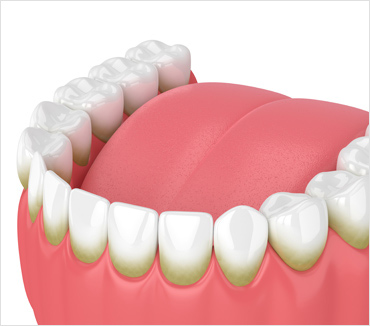What is Tartar and how to control its buildup?
What is Dental tartar?
Tartar, also referred to as calculus, can take a serious toll on your oral health. Tartar is a hardened form of dental plaque (a sticky biofilm of bacteria). When plaque remains on your teeth for prolonged periods of time, minerals from your saliva become incorporated into the plaque causing it to harden and strongly attach to the surfaces of your teeth. Tartar not only has a bad appearance, it can also lead to several oral issues, including gum disease and tooth decay. Unlike dental plaque which can be removed at home by a good oral hygiene routine, tartar must be removed by a dental professional. Common risk factors for tartar buildup are braces, dry mouth, crowded teeth, smoking, and older age.

How to know if there is a tartar buildup?
It can be relatively easy to spot tartar buildup on tooth surfaces, as it presents commonly as a yellow or brown stain. During your regular dental check-up and cleaning, your dental professional will detect and remove tartar. At home, you can check whether or not you are removing dental plaque properly by using plaque disclosing tablets, which can be purchased over-the-counter at many drug stores. The tablet will reveal areas with remaining plaque, which will become temporarily stained by the colored tablet.
What causes Dental Tartar?
When we consume foods and beverages, particularly those high in sugar, oral bacteria feed on the sugars allowing them to grow and form dental plaque. The combination of saliva, food particles, and bacteria stick to all of the surfaces of teeth and lead to the formation of dental tartar if not removed properly.
How does tartar affect teeth and gums?
Tartar can cause harm to your teeth and gums by increasing your risk for developing the following:
- Cavities: Oral bacteria feeding on the sugars we consume leads to the production of acids that contribute to tooth decay and enamel erosion.
- Gingivitis: Accumulation of plaque and tartar can lead to gum inflammation, which can cause a mild form of gum disease known as gingivitis. Signs of gingivitis can include swollen, red, tender and bleeding gums. If not managed, gingivitis can progress into a more severe form of gum disease known as periodontal disease.
- Bad Breath: Tartar buildup can contribute to strong oral odors.
How to prevent tartar buildup?
It’s important to maintain good oral hygiene to prevent plaque and tartar buildup. Brush all of the surfaces of your teeth at least twice a day for two minutes each time, and floss daily to help remove plaque in-between teeth. Be sure you are visiting your dentist regularly for check-ups and cleanings, typically every 6 months or more frequently depending on your specific oral conditions and the recommendations of your dental professional. An electric toothbrush may be recommended by your dentist to help effectively remove dental plaque. Fluoride and antibacterial mouth rinses are also a great addition to add to your dental routine. In addition, avoiding habits such as smoking can help lower your risk of plaque and tartar buildup.
Our doctors and dental specialists provide a wide range of dental services at our 40+ multi-specialty dental offices across Massachusetts and New Hampshire. Our dental team is compassionate, and our main goal is to provide you a comfortable, caring dental experience. Book an appointment at your local Gentle Dental today.



